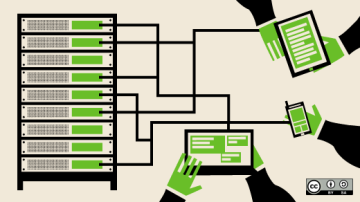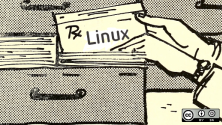For today's sysadmin, many companies expect you to have cross-platform knowledge, network knowledge, and application knowledge. Add to that a dash of programming ability, a pinch of sysadmin experience, a heaping portion of social skills, and a fanatical commitment to reliability and automation.
What do we call this new, post-modern sysadmin? Do we use the same term and simply stretch the responsibilities? Or do we give this evolved role a new name?
We chatted with friends at Enable Sysadmin and in the Opensource.com Correspondent program to get their thoughts. Here's what we heard:
Possible titles
- How about Enterprise Architect or Solutions Architect?
- Or are we talking more of a DevOps Engineer or Site Reliability Engineer?
- What level of experience and expertise are we looking at? Maybe an Applications Specialist or IT Helpdesk Administrator?
- Overheard: Platform Engineer or System Engineer
Potential skills
- setting up a new user account in Google Workplace or similar
- configuring and ordering laptop, cell phone, service contracts
- software training (teaching a new user how to use kanban boards, shared storage solutions, or similar)
- preparing “procedures” manuals
- monitoring and checking security settings and storage usage
- keeping an eye on pooled storage
- deactivating a user leaving us
- arranging for pickup of equipment
- working with a user and provider having personal equipment difficulties
- keeping an eye on internet connection services, telephone services
Lingering questions
Does today's sysadmin need to understand clustering, containers, FS sharding, unicast/multicast coms, and other similar topics?
Is there a dividing line between infrastructure and systems?
Could the title of systems administrator remain the same while the role changes?
Does the image of a sysadmin crawling under the desk to fix broken cupholders still apply?
Are most of today's sysadmins already using a PaaS approach in tandem with doing the basic administrative tasks of managing users, accounts, applications, and licenses?
Are they also a helpful resource for colleagues, acting as an interpersonal bridge between other departments and IT?
Share your thoughts and experiences in the comments.












Comments are closed.